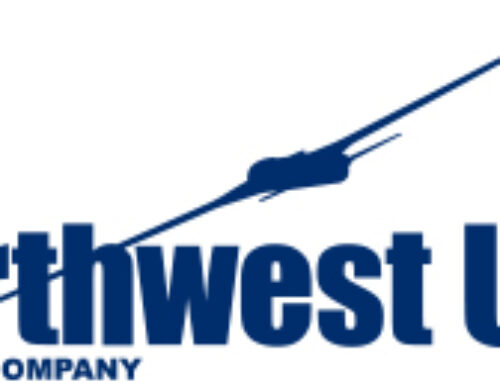The 2019 session can be boiled down to four areas:
1. Revenue: the state is seeking 5.67 in new revenue bills that are still alive at the legislature. The largest one is the $2B for education (early childhood ed and k-12). There is also the $500M healthcare tax on employers with 50 or more employees. And the $1B in tax to establish a family leave program.
2. Cap & Trade (HB 2020): Oregon State Chamber and others are working with legislators to figure out changes to the bill that would offset the increase in costs on electricity and natural gas for local businesses. These efforts could prove successful. However, there is no focus towards reducing the major increase in gas taxes that would result from it. An initial 16-cent per gallon tax hike is projected, additionally it establishes a new bureaucracy, the Carbon Policy Office, which would have broad powers over the economy.
3. SAIF Raid and PERS Reform: the response to the Governor’s proposal to take $500M from SAIF, take another $500M from the kicker and require Tier 1 and Tier 2 public employees to contribute 3% of salary to their pensions has not been supported from either side. Republicans will not support the kicker option and unions won’t support public employee contributions to their own pensions and businesses vehemently oppose to raiding SAIF.
4. Other business issues: SB379 Marijuana accommodation; HB2408 Prevailing wage; SB726 workplace harassment liability: and HB2014 eliminates the $500K cap on non-economic damages in civil lawsuits. (There is additional information below on these bills)
Major issues we are following:
- Commercial Activity Tax
HB 3427 Another major issue at the legislature this week is the Commercial Activity Tax. This is the new $2 billion Commercial Activity Tax (HB 3427) and would allocate the revenue for education funding. It has the following components:
– A flat $250 tax on all business entities for sales under $1 million
– All business entities with sales over $500,000 must register with the state
– A gross receipts tax rate of 0.49% on Oregon sales over $1 million
– A 25% deduction from taxable sales for labor OR business inputs, whichever is higher
– An exemption for receipts from sales to a wholesaler or agricultural cooperative for any sales outside of Oregon
– An exemption for groceries (defined as those that qualify for ‘SNAP’)
- SAIF Raid, Pers Reform, Cost Containment
Governor Brown unveiled her plan to halt the rise of PERS costs for Oregon schools by sweeping almost $700 million in reserves held by SAIF (State Accident Insurance Fund). SAIF believes it can contribute somewhere around $300 million in the next 7 years without impacting policyholder rates and dividends. This proposal also includes taking $400-500 million in kicker payments to pay down the K-12 PERS liability. The catch with taking the kicker would be that it requires a 2/3 vote by both legislative chambers.
- Health Care Tax – HB 2269
This bill is a $500 million (per biennium) health care tax on employers with 50+ employees. It would give the Department of Consumer and Business Services (DCBS) a blank check to determine how much each business ‘should’ be spending on health care for its employees. On top of that, DCBS will tax each business that doesn’t spend as much on health care as they believe it should. Legislative Counsel has determined that because the bill simply allows an agency to construct and levy the tax, it does not require the 3/5th supermajority to pass the legislature.
- Paid Family & Medical Leave – HB 2005
This bill gives the Employment Department the authority to levy up to a 1% payroll tax on employers and a 1% income tax on employees to implement a 26-week per year paid family leave program. It would apply to all employers with at least one employee and raise $1.5 billion in new taxes every biennium.
- Bounty Hunter Law – SB 750
This would allow employees and third-party organizations to act as private attorneys general to supplement enforcement actions by public agencies. It would establish procedure for aggrieved person, whistleblower or representative organization (labor unions, for ex) to bring action in name of the State to recover civil penalties for violations of certain laws related to labor and employment. This would create a wave of costly litigation against Oregon employers.
- Pay Equity Technical Fixes – SB 123
Following the BOLI rulemaking in November 2018, necessary technical fixes to assist local businesses in complying with the Oregon Equal Pay Act were brought forward by Oregon State Chamber of Commerce. This bill extends the application of the provision prohibiting salary history inquiries to include employment agencies. It provides that 90-day notice of a complainant’s right to file a civil action does not apply to complaints alleging violation of prohibition against salary inquiries filed before January 1, 2024.
- Pregnancy bills
Pregnancy Accommodations (HB 2341). This bill was amended to apply new pregnancy accommodation requirements to employers with 6 or more employees. Also, it allows any employers to file an undue hardship exemption with BOLI.
Expressing milk in the Workplace (2593). Amendments were made to this bill, which allows employers with 10 or fewer employees to file an undue hardship exemption with BOLI if providing unlimited nursing breaks causes significant difficulty or expense.
- Marijuana Accommodations (SB 379)
This bill would undermine and nullify all employers’ workplace drug-free policies and would require employers to accommodate off-duty marijuana use. This would heavily impact the ability of employers to implement and enforce workplace drug-free policies.
- Prevailing wages in Enterprise Zones (HB 2408)
The scope of this bill requires prevailing wages on private projects valued at $20 million or more in enterprise zones. This passed on the House floor very easily. All private projects in Enterprise Zones in excess of $20 million would require prevailing wages on all private projects.
Other issues that we are following on your behalf:
– SB 595: diversion of transient room taxes to fund housing (the City of McMinnville is in favor of this bill and has testified in support).
– SB 726: workplace harassment liability
– HB 2014: eliminates $500 cap on non-economic damages in civil lawsuits
Some key facts about Oregon, and Manufacturing jobs around the State (NAM, National Association of Manufacturers data)
– Over 7,400 manufacturing Jobs in Oregon depending on exports to Canada and Mexico.
– 1-in-5 manufacturers in Oregon sell to Canada and Mexico.
– Oregon exported $3.4 billion in manufactured goods to Canada and Mexico and 2018.
– Without a free trade agreement for North America, Oregon manufactured goods could face up to $249 million in extra tariffs.
When any updates become available, we will provide additional information regarding these and all the other bills still currently in legislation.
Write to your legislator TODAY!
Click on this link https://www.votervoice.net/OSCC/campaigns/65435/respond and sign your name to the grassroots letter created for us by the Oregon State Chamber of Commerce. Your voice matters.




